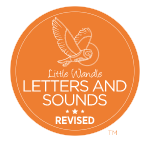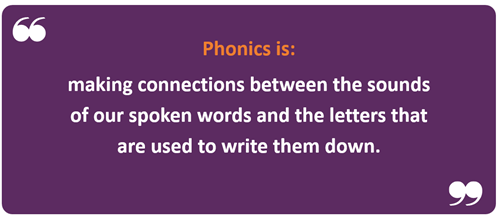
Phonics & Reading
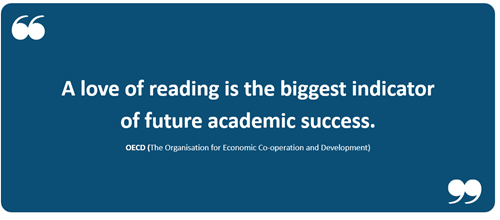
At Great Bradfords Infant and Nursery School, we believe that nurturing a child’s enjoyment of reading is key to them developing a life-long love for reading. We recognise reading is the single most important transferable skill that we can equip our children with. As a result, we are passionate about reading and getting that journey right for every child.
We have chosen Little Wandle Letters and Sounds Revised as our systematic, synthetic phonics (SSP) programme to teach early reading and spelling.
Some children learn to blend really quickly, and others take a little longer. If your child is finding it difficult, ask your child’s teacher for ways to help at home – playing blending games at home is so helpful!
How we teach children to blend is shown in the video below.
We usually teach four new sounds a week and have a review lesson on a Friday. You will get a list of the sounds that we are learning to have at home. This will help you with formation and pronunciation.
You can also watch these videos to check how we pronounce each sound when we are teaching...
What are tricky words?
Tricky words are words that early readers will struggle with. This might be because they have unusual spellings, contain new sounds and graphemes or don't follow ordinary phonemic rules. Many tricky words are ones that we use often, so it's important to teach children how to spell and pronounce them.
How do we teach reading in books?
Reading practice sessions are:
- timetabled three times a week
- taught by a trained teacher/teaching assistant
- taught in small groups.
The children read the same book three times in a week and will bring this book home too. The first time we read the book in school, we work on decoding (sounding out) the words, the second time we work on prosody which is reading with expression – making the book sound more interesting with our story-teller voice or our David Attenborough voice – and the third time we look at comprehension. We read the books three times at school because we want to develop the fluency. The more they see words the more they begin to read them automatically without having to sound them out.
We use assessment to match your child the right level of book and to check progress. Any child who needs extra support has daily keep-up sessions planned for them.
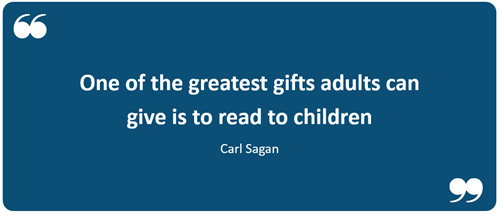
Supporting your child with reading
Although your child will be taught to read at school, you can have a huge impact on their reading journey by continuing their practice at home.
There are two types of reading book that your child may bring home:
A reading practice book. This will be at the correct phonic stage for your child. They should be able to read this fluently and independently.
A sharing book. Your child will not be able to read this on their own. This book is for you both to read and enjoy together.
Reading practice book
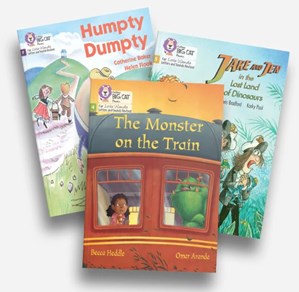
This book has been carefully matched to your child’s current reading level. If your child is reading it with little help, please don’t worry that it’s too easy – your child needs to develop fluency and confidence in reading.
Listen to them read the book. Remember to give them lots of praise – celebrate their success! If they can’t read a word, read it to them. After they have finished, talk about the book together.
Sharing book
In order to encourage your child to become a lifelong reader, it is important that they learn to read for pleasure. The sharing book is a book they have chosen for you to enjoy together.
Please remember that you shouldn’t expect your child to read this alone. Read it to or with them. Discuss the pictures, enjoy the story, predict what might happen next, use different voices for the characters, explore the facts in a non-fiction book. The main thing is that you have fun!
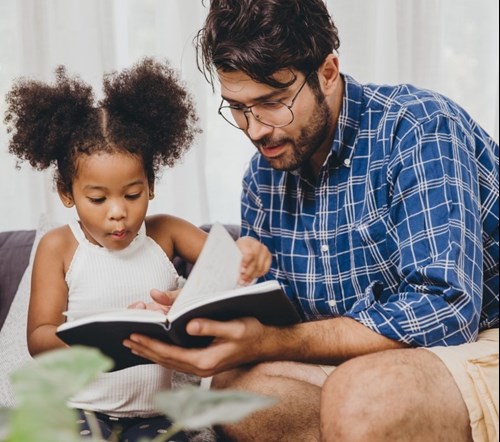
When reading with your child;
- Make the story sound as exciting as you can by changing your voice.
- Talk with your child as much as you can:
- Introduce new and exciting language
- Encourage your child to use new vocabulary
- Make up sentences together
- Find different words to use
- Describe things you see
